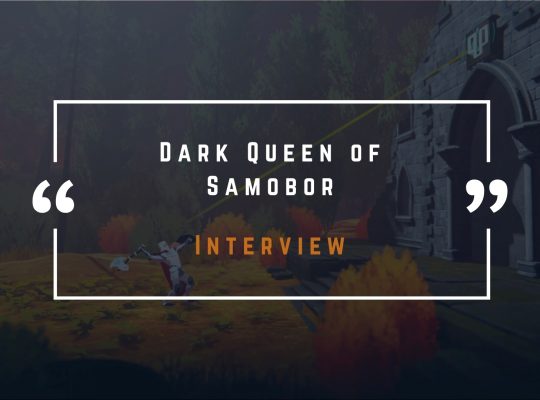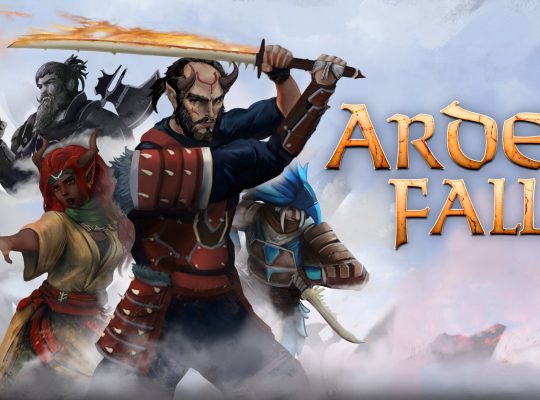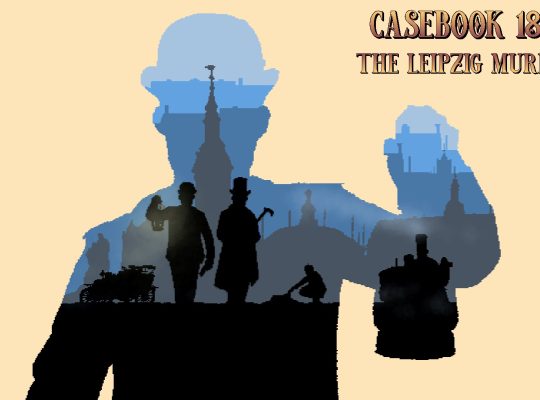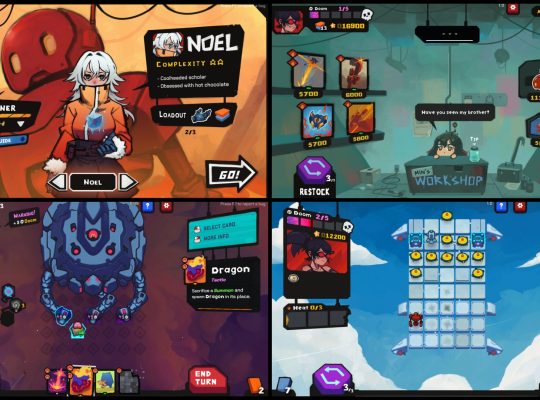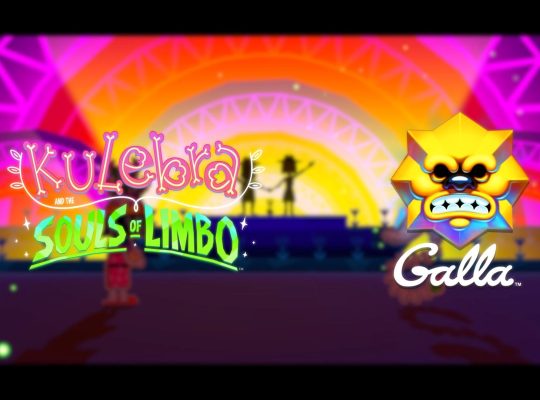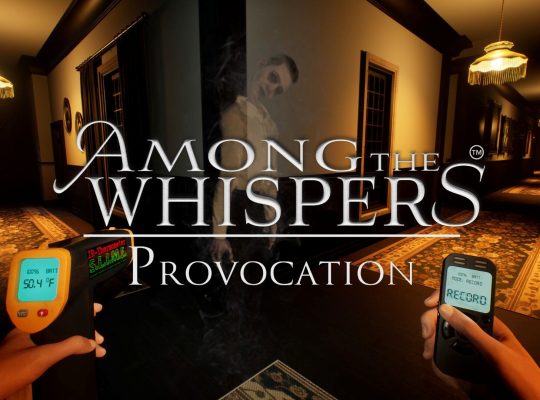At the panel titled Actor for All: Voice Acting, Motion Capture, and Performance Capture, held during this year's first Blender: Film & Games conference, we gained insight into the challenges and dynamics of these professions. Besides passion, dedication is also key, which was best confirmed by voice actor Daniel Dizdar.
Although we often do not pay attention to the ads that appear on our mobile phones, computers, or televisions, Dizdar's voice is one of those we can easily recognize, and in most cases, we do not even know it is him. His versatility is the reason many want to collaborate with him, and he gained popularity by participating in the singing competition Hrvatska traži zvijezdu and the show Supertalent. Additionally, he has a significant number of followers on social media, and he particularly enjoys working on animated films, where he voices various characters.
He was born in Chicago but grew up in the vicinity of Karlovac, in the settlement of Kamanje. What sets him apart and for which many praise him is his unique combination of American and Croatian ways of speaking and dialects, which gives him a special tone and way of expression and allows him to play with his voice. He has lent his voice to more than 400 TV commercials, among which Konzum, Coca-Cola, Pevex, and others stand out. This year, he was also the voice of the villain in the animated film "Ten Lives" and is known for his voice as SpongeBob.
Before the panel, we talked to him about how many voices he can imitate, what he thinks about artificial intelligence, whether he wants to participate in video games, and what he enjoys most in his career as a voice actor and where he sees himself in the future. Furthermore, we definitely recommend listening to his portfolio in more detail.
You are the most famous Croatian voice actor. We hear you in various commercials and cartoons. Do people often recognize you?
Many people recognize me, especially after 2017. At first, I thought it would fade over time since I no longer appear physically on television, except on platforms like TikTok and YouTube. However, most people still recognize me from the time when I was more visible on television, especially because of my voice impersonations.
What does your working day look like?
Well, I’m a bit of a “freak” when it comes to organization. I live by schedules and keep track of everything – when I wake up, when I go to sleep. At the beginning of my career, I would always rush whenever someone needed something, but now I’m more entrepreneurial and focused on my own projects. For the first 4-5 hours, I work for myself, and only then for others. I go to studios, record, and if it’s something I’ve been doing for 10 years, I don’t need much preparation, so I handle that in the afternoon.
You are a voice actor, imitator, and singer. What techniques do you use in your work?
I use various techniques, depending on what is needed. I mostly work as a voice-over artist, which is a broad field. There are few good voice actors, so I enjoy doing vocal singing as well. Sometimes I need to imitate voices, create synergy with post-production, or adjust my voice according to technical requirements. A good understanding of these things helps in recording. Sometimes I also have to work on sound effects.
Do you often have problems with your voice? Does constant strain affect your voice?
Yes, it was difficult for me when I had two sessions a day. Those were three-hour recordings per session, so six hours of work. Sometimes I would have a third studio for something completely different. It was extremely exhausting, especially when you have to shout. You always have to be well-rested because it’s hard to "fake" being in a good mood during recording. You have to sound enthusiastic; otherwise, it sounds bad. That’s why it’s important to come mentally prepared. And when you’re not, caffeine always helps. However, I have slowed down a bit and have been choosing projects in the last two to three years.
What do you think about social media, do they help you in your career?
I think anyone building a career should have social media. In my case, what I do is very interesting to people. Even if I'm working on something quieter, there's always some video that does well. I have fun on social media, adapting the content to what interests me, promoting films, especially feature-length and animated ones. It entertains the audience, improves promotion, and for me, it's something new and interesting in the last two years.

How many voices can you imitate?
Honestly, we’ve never counted, so I don’t know exactly either. On my website, I have about 60 speaking styles that I could list, but it all depends on how much subtlety you want between each voice. It really depends on the level of precision. Also, I’m quite self-critical – maybe I think a certain voice isn’t good enough, while someone else would say it’s excellent. That’s why I usually use the voices I consider to be the best.
If I remember correctly, you were SpongeBob?
Actually, there were three SpongeBobs. First, one studio worked on it, then another studio took over with a new actor. When that actor went to Ireland, there was a gap and panic ensued – what now? Then they asked me to do a voice test. My voice is a bit heavier and more raspy compared to the previous SpongeBob, who had a softer, higher voice. But in the end, it turned out great because, although my voice is rougher, I can do more with it. Recording SpongeBob is never boring; we always have fun and laugh, even after ten years. Time really flies!
Do you prefer working on animated films then? What do you enjoy the most?
Working on cartoons is always fun, although after 12-13 years in the field, it's hard to find something I haven't done before. Still, SpongeBob never gets old for me. Even if I come in tired, the recording is always enjoyable. I also love doing voiceover work, but I think marketing in Croatia sometimes plays it too safe. In foreign commercials, the voice is often a key element, whereas here it doesn't get as much attention. I believe there could be much more experimentation with voice acting in commercials.
You were in the show Supertalent. When did you decide to apply?
I applied at a moment in my life when I realized that this is a job where every promotion means a lot. In every job, it’s important for people to recognize and recommend you. Nowadays, social media makes promotion easier, but older individuals, who are often in key positions, may not be as present on those platforms. That's why it's good to devise a strategy. Appearing on the show opened new doors for me, like a long-term collaboration with Pevex, which I have been doing for four years now. My appearance on television helped a wider audience get to know me.
What advice would you give to young talents who want to succeed in this business?
Well, I would say that when you decide to pursue this job, you have to fully commit to it. These are professions that seem glamorous, like acting and modeling, but behind the scenes, there is a lot of hard work. Many people are attracted to extravagant careers but do not want to put in the effort required. For example, kids come to the studio, record for a few hours, and after a couple of sessions, they say they've had enough. Every job is hard in its own way. My advice to young people would be to study the industry, develop their skills, and adapt to the future – because technology will certainly change this job in the coming years.

Do you think AI will take over the jobs of voice actors?
I spoke with a sound engineer who has over 25 years of experience, and we touched on how AI could impact our work. He started his career in the early versions of digital programs, but back then everyone was still working on old machines, and no one was studying new technologies. As a young sound engineer, he couldn't make a big change right away because he needed to gain trust and contacts. However, after a few years, those who didn't keep up with technology slowly fell out of the game.
When it comes to voice work, it's hard to predict the future because if someone knew what would happen, they would already know which stocks to buy. But it is certain that new technologies are gradually entering the market. For example, for lower-quality or less important projects, AI voices may be used more and more. In English, AI voices are already quite good, while Croatian is more complex and mixes with similar languages like Serbian, which makes precise imitation more difficult. However, in English, AI voices are already so good that they can sometimes be hard to distinguish from real ones.
Slowly but surely, AI is entering the market and affecting our work. When I look at my earnings, I see how it is gradually eating away at part of the market, and the moment may come when it will be necessary to think about alternative careers. That’s why it’s important to remain adaptable.
Have you already noticed AI voices that are hard to distinguish from real ones?
Yes, it has happened a few times that I didn't immediately recognize the voice as AI, especially in the first 5 seconds. When I realized, I thought, "Oh, yes!" It's time to consider alternative options. Every career has its challenges and takes time to build up. When we decide on a change or a new path, we must be aware that it takes time to build. That formula applies to everyone, and that's why I recommend it to others – success doesn't come overnight, but through gradual progress and persistence.
Have you worked on video games as a voice actor?
Yes, I have been part of several games. In Phageborn, I voiced monsters, and I also worked on Scullport as a pirate. Although I haven't worked on Croatian games, it's my wish. If there is an opportunity, I would gladly get involved in some Croatian gaming project.
What do you think about the conference related to movies and games?
I just arrived, so I don't know much yet, but this is my first time here, and I'm looking forward to it because I know there will be quite a few well-known people. It will be interesting to see how everything will look.
How was it working on the animated film Ten Lives? What role did you have?
It was great and fun! I played the role of the villain, which I always particularly enjoy because such characters have a lot of expressiveness. My character was manic-depressive, so he shifted from explosive to calm phases, which was a real challenge. I love when a character has a full spectrum of emotions because that's when I can fully showcase my talent. Although it's hard on the voice, I always enjoy taking on such roles.
Do you see yourself as an actor compared to other careers?
One of the reasons I love voice acting is that I don't have to memorize entire scripts. When I had to memorize the whole script for recordings a few times, I was under immense stress. Fortunately, it worked out, but after that, I decided to choose projects where I don't have to learn the text by heart as much. I prefer working on specific projects where I can focus on one task and give it my all.
Do you have any special wish for a role in a video game?
I don't have big appetites, but it would be great to have a role in some game, like a soldier on the map, giving short commands like "Hey, hurry up, the team is waiting for us over there!" I would already buy that game just for that moment. I've learned that low expectations are the key to a happy life, but I love pushing boundaries and working on projects that challenge me.
Do you play video games in your free time?
I have a lot of responsibilities and I run two jobs, so I don't have much free time. However, when I catch a moment, I like to play something. League of Legends takes up a lot of my time, especially when I uninstall it and then reinstall it, and then wait for it to update – that's already a punishment in itself! But I've loved playing, from Age of Empires 2, Civilization 4, to Unreal Tournament and GTA. For example, I know the entire Chatterbox from GTA 3 by heart, as well as the game radio. Those games have stayed in my memory.




